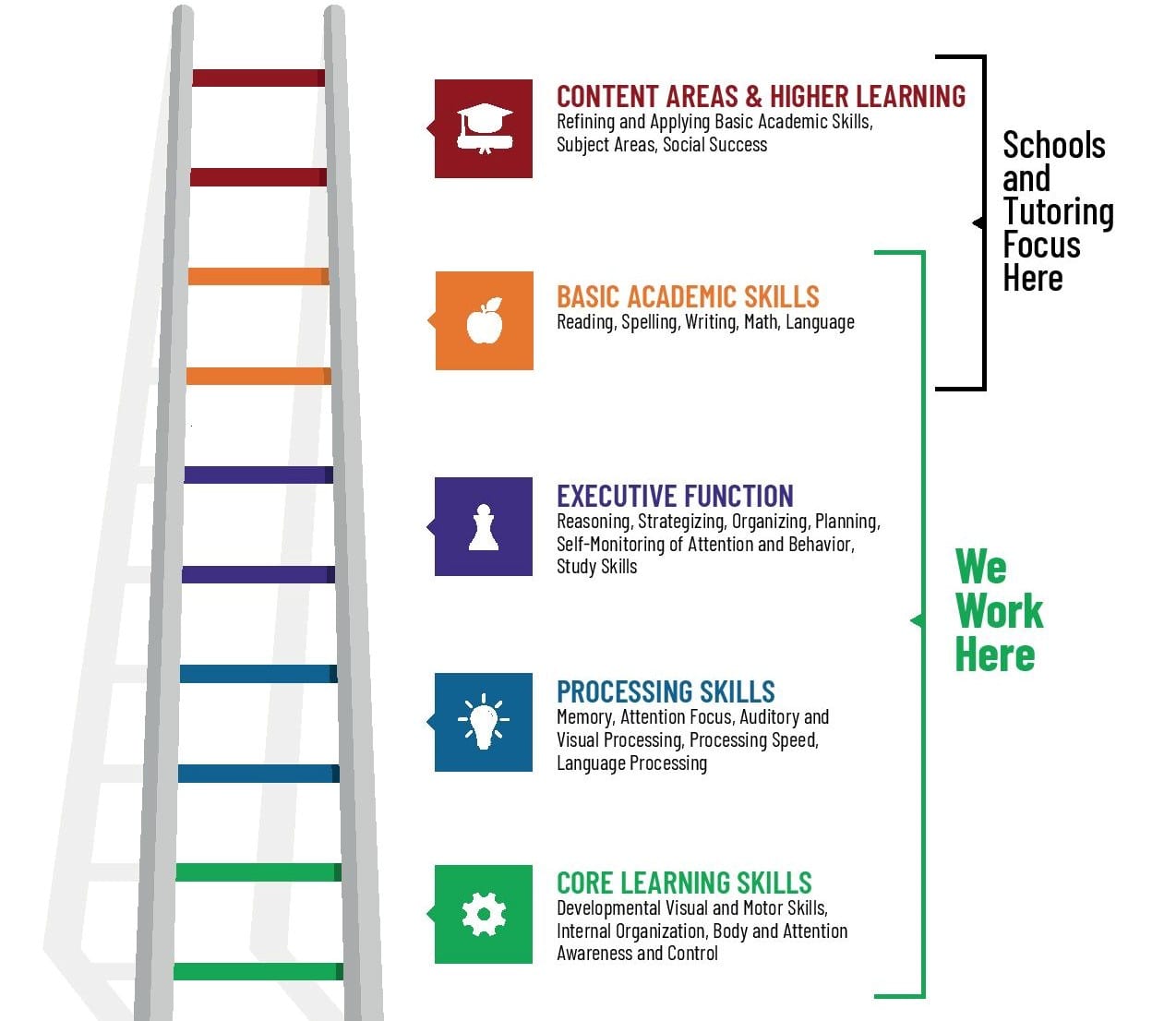Someone emailed me a cartoon of a principal on the phone with a parent saying, “I wouldn’t say your son is a bad child. He’s gifted in disruptive behavior.”

Many years ago when I taught 4th grade, I had a student, Tony, who constantly made clever comments to me over the heads of his classmates. While his comments were very funny, they were also disruptive to the flow of the lessons.
Disruptive behavior in class can be the result of many things. It could be, as in Tony’s case, just a way for an exceptionally bright student to entertain himself, but continuous disruptive behavior is often a symptom of underlying learning/processing skills weaknesses that cause challenges with learning, attention, or flexibility.
Michael is a bright, dyslexic student who jokes around with his classmates instead of doing his work. He is in trouble all the time, but it covers the fact that reading and writing are extremely slow and laborious for him.
Adrienne constantly asks her classmates, teacher, and parents for help getting started on assignments. She never seems to have any idea what the instructions are. Her disruptive behavior is not the result of not listening but of not being able to listen and take in information effectively due to an auditory processing problem.
Five-year-old Sam manipulates his parents and screams when he doesn’t get his way. So far, he’s not showing signs of academic challenges, but his behavior disrupts every aspect of family life. Sam has retained reflexes that cause him to operate in “fight or flight” mode all of the time. The only way he can feel secure is if he is in control, even if he gains that control with out-of-control behavior.
We all rely on our underlying processing/learning skills to help us feel safe and to learn and function comfortably. If any of the underlying skills are weak or not supporting us well, we may feel like we’re trying to do a job at the top of a ladder that has unstable rungs.
Disruptive behavior often has its root in weak underlying processing or learning skills. Thankfully, the brain is amazing and these critical skills can be developed through targeted and intensive brain training.
What a joy it is to see disruptive behaviors disappear, as they are no longer needed to help students navigate their world with weak underlying skills.
If your child is getting an A in “disruptive behavior,” as a result of learning or attention challenges, there is hope.
JOIN US for a FREE Information Meeting/Parent Information Night to learn more about the root of the problem and what can be done to correct it.
Go to www.stowellcenter.com for details and RSVP.
“Helping smart but struggling students dramatically improve or completely correct their learning and attention challenges by developing the underlying learning skills that are not supporting the learner well enough.”
We serve children and adults with diagnosed or undiagnosed learning and attention challenges including learning disabilities, dyslexia, ADHD, auditory processing disorders, and autism spectrum disorders.
Jill Stowell, M.S.
Author: At Wit’s End A Parent’s Guide to Ending the Struggle, Tears, and Turmoil of Learning Disabilities
Founder and Executive Director – Stowell Learning Centers
Recent Posts
Ready to take the next step?
Speak to a Learning Specialist to learn more about the results from students and parents at Stowell Learning Centers.

